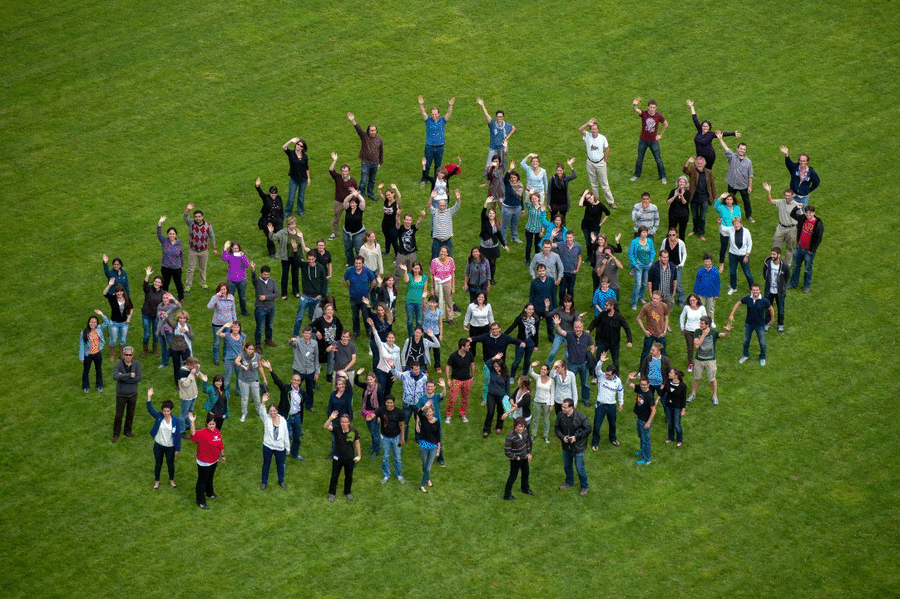A PhD at the CIG: at the cutting edge of modern biology
We are in the midst of a revolution in the biological sciences. A wealth of genome sequences, from bacteria to humans, provides a basis for understanding the common properties of living organisms and the variations that contribute to their diversity. This flood of information has come hand-in-hand with a spectacular development of technologies that now allow investigation of biological systems at the genomic, proteomic, cellular and organismal levels.
The Center for Integrative Genomics (CIG) at the University of Lausanne was established to take advantage of this revolution and offers an outstanding intellectual and integrative environment for PhD studies. The CIG is currently home to about 40 PhD students coming from all over the world. The energy and enthusiasm of these junior scientists are central to the life and research of the CIG.
Read the interview of two PhD students talking about their experience at the CIG: http://cigreport.genomyx.ch/phd-students/
Mentorship of PhD students
PhD students benefit from the supervision of a thesis committee, in addition to their research supervisor. The CIG has also organized a support program, in which each PhD student selects a second member of the CIG Faculty as an academic mentor. This mentor provides support and advice during the PhD studies, and can act as a reference later. In principle, the academic mentor works on a different topic than the one the PhD student is working on, as this should help to provide different points of view and broaden horizons and connections.
Empowerment
By getting directly involved in different committees, either at the scientific, social, or leadership level, PhD students can help contribute to shaping the direction program, support students’ wellbeing and maintain an enriching atmosphere for research, and develop leadership skills.
Ask our PhD students' representatives further information on the social committee, the seminar panel and the students' associations, their details are on the contact tab.
PhD candidates have to choose a study program and apply to it. This has to be done in parallel to the matriculation process.
List of the doctoral programs available at the Faculty of Biology and Medicine of UNIL: https://www.unil.ch/ecoledoctoralefbm/home/menuinst/doctorate/study-programs-ects.html
At the CIG, we offer these two doctoral programs :
Quantitative Biology Doctoral Program
Optional additional doctoral program:
It is also recommended to register to a CUSO doctoral program. You have 4 choices, see: https://biologie.cuso.ch/accueil/
CIG yearly retreat
The CIG organizes each year a retreat in the swiss mountains, an occasion for all its members to discuss science and get to know each other better.
Progress reports
Every second Thursday, CIG researchers gather in the lecture hall of the Génopode building to see two of their peers present their research progress. This is an opportunity for students to receive feedback from peers, promote bridging of knowledge, expertise, and collaborations across different research groups. These seminars are not public.
CIG seminars
CIG wide seminars are regularly organized on Monday. PhD students can meet and interact with the speakers during their visit, either over an informal lunch and/or individual meetings. They can also participate in the selection of speakers.
Non-science related events
The CIG is a very pleasant place to work: it is established near the Leman lake side which makes it easy to regularly organise summer dinners on the beach. In winter, the CIG ski day is an institution!
PhD students and postdoctoral fellows form the social committee, who regularly organises social events on site and/or in Lausanne, financially supported by the CIG Direction; beer O'clock, language exchange, second-hand free market, lab presentations to new comers, etc.
The Direction itself also organises broad events such as the Genopode got talent exhibition and the End of the year celebrations.

Compulsory:
1) Matriculation as a PhD student
https://www.unil.ch/immat/en/home/menuinst/futurs-doctorants.html
You have to do it max. one year after your arrival. Pay attention to the deadlines, it is only possible twice a year.
2) Choose a study program and apply to it (i.e. Quantitative Biology (join here), Life Sciences, Neurosciences, Cancer and Immunology, …)
https://www.unil.ch/ecoledoctoralefbm/home/menuinst/doctorate/study-programs-ects.html
It has to be done in parallel to the matriculation process.
Optional:
3) It is recommended to register to a CUSO doctoral program. You have 4 choices, see: https://biologie.cuso.ch/accueil/
End of thesis:
4) End of thesis procedures (PDF)
Send a mail for more information
